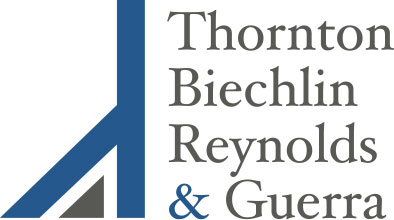The Supreme Court of Texas recently clarified and expanded Texas’ “eight-corners” doctrine for determining whether an insurer has a duty to defend its insured against a given lawsuit, in Monroe Guar. Ins. Co. v. BITCO Gen. Ins. Corp., No. 21-0232, 2022 WL 413940 (Tex. Feb. 11, 2022). Under a strict eight-corners rule, an insurer’s duty to defend is determined solely by the facts alleged by a plaintiff, and comparing the four corners of the petition or complaint to the four corners of the policy. Extraneous facts not appearing on the face of the plaintiff’s pleadings are not considered. Some state and federal appellate courts, however, developed an exception to be used when the pleadings did not contain sufficient facts to determine coverage. See e.g., Northfield Ins. Co. v. Loving Home Care, Inc., 363 F.3d 523 (5th Cir. 2004). The Fifth Circuit certified two questions to the Supreme Court of Texas, asking whether this exception is permissible under Texas law, and, if so, whether to apply it to this case. The Court reaffirmed that applying the eight-corners doctrine is always the initial inquiry in effecting the intent of the insurer and insured. However, extrinsic evidence may be considered provided the evidence (1) goes solely to an issue of coverage and does not overlap with the merits of liability, (2) does not contradict facts alleged in the pleading, and (3) conclusively establishes the coverage fact to be proved. This exception joins the exception articulated in Loya Ins. Co. v. Avalos, concerning parties colluding to secure a defense and create coverage where it would not otherwise exist. 610 S.W.3d 878, 879 (Tex. 2020).
In the underlying dispute, landowner David Jones d/b/a J & B Farms of Texas (“Jones”) sued 5D Drilling & Pump Service, Inc. (“5D”), alleged that 5D’s negligent drilling of a water well caused damage to Jones’s land. 5D was the insured of BITCO General Insurance Corporation (“BITCO”), and then later of Monroe Guaranty Insurance Company (“Monroe”). 5D demanded a defense from both companies. The duration of the drilling contract and operations spanned both insurance policies, but Jones’s petition did not give a date on which the alleged act or damage occurred. BITCO provided a defense under a reservation of rights, but Monroe refused, alleging that any property damage occurred before its policy period began.
BITCO sued Monroe in Federal Court and the parties filed cross motions for summary judgment. The parties stipulated that an event central to the plaintiff’s case – that a drill bit became stuck in the drilled well – occurred “in or around November 2014,” during the term of the BITCO insurance contract and before the Monroe policy was in effect. However, the District Court ruled the stipulated fact was inadmissible, under Texas’s eight-corners rule. The court ruled that because the plaintiff’s petition contained only the dates for the drilling contract, the damage could have occurred at any point during that period.
On appeal and certification, the Supreme Court of Texas reasoned that excluding uncontested extrinsic evidence could create a windfall for the insured. It would also disserve the goal of enforcing the insurance contract as written. The Court emphasized a fact cannot be considered when there is a genuine issue of material fact, and that any doubts should be resolved in the insured’s favor.
In this case however, the stipulated extrinsic fact did not meet the Court’s new test and could not be considered. The Court pointed out that 5D would likely want to prove at trial that the stuck drill bit was not the cause of any damage. The Court went on to reason that allowing extrinsic facts concerning the date when the bit became stuck would put 5D in the untenable position of needing to represent that the event of the stuck bit caused damage, so as to secure coverage, while also representing in the liability case that the stuck bit caused no damage.
Back to News
